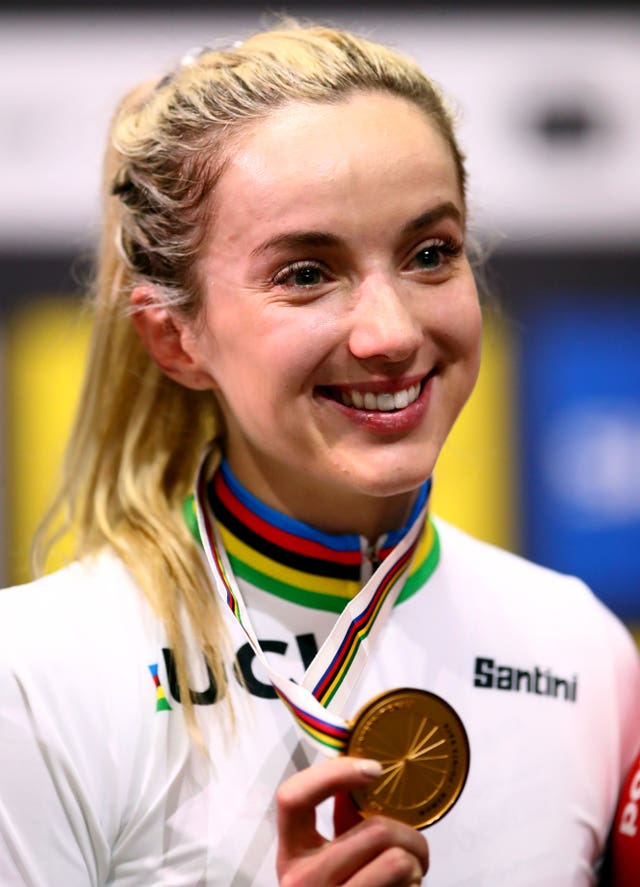Elinor Barker admits Tokyo 2020 delay could boost GB team pursuit rivals
Britain won women’s team pursuit gold at the Rio 2016 Olympics.

Elinor Barker admits the postponement of Tokyo 2020 could leave Great Britain’s women’s team pursuit squad ‘on the back foot’ as they try to retain their Olympic title.
While the men’s team pursuit squad will see the 12-month delay as an opportunity to close a growing gap to the rest of the world, the women have been among those leading the way.
Barker won points race gold at the World Championship in Berlin last month while helping Britain to team pursuit silver behind the United States, suggesting they were well on course for another strong showing this summer.

Now their rivals have more time to catch up.
“There are a lot of nations who are very quickly finding a lot of gains,” Barker told the PA news agency.
“Germany will look at this and think, ‘Great, we needed a bit more time’. They did their fastest time at the World Championships and they just need a bit more refinement, a bit more time, which they’ve now got.
“That’s a huge challenge for us as we’re now maybe on the back foot.”
Like most Olympic athletes, Barker went through a mix of emotions once it became clear the Tokyo Games would not go ahead this summer.
By the time the announcement actually came on March 24, she had come to terms with it, but the preceding period, when there was growing rumour and speculation, was more difficult.
“It might sound over the top but initially it was a kind of grief,” the 26-year-old said. “I suppose that sounds ridiculous and I hope it doesn’t sound insensitive given the time we’re in – I know it’s nothing compared to what a lot of people are going through.
“But it was difficult to go from the mentality you need to get in a position to be selected for an Olympics – you need to be thinking about it all the time, it needs to be part of every decision you make from how you train to what you have for dinner to what time you go to bed or whether you spend less time with your family at Christmas.
“I was thinking about all the sacrifices I had made over the years and I felt like it was for nothing because next year feels like a long time.
“But then you turn on the news and you realise it’s not that big of a deal at the moment. I’m lucky that my sadness is over an event that can be postponed, whereas a lot of people are facing challenges or losses that can’t just be put back a year.”
Barker is now enjoying something of an off-season – “I haven’t really had one for 10 years,” she said – as she waits to learn when then next race might come. The problem is, it could be a long time.
The UCI last month announced a major revamp of track competitions, ditching the winter World Cup for a Nations Cup staged in the summer, and that means that aside from the European Championships in October, the calendar is now blank until March.
British Cycling has written to the world governing body asking to be consulted on proposals to address that, but for now questions remain.
“It’s a very unfortunate circumstance anyway but for track cyclists this is probably the worst time for (the Olympic postponement) to come because we’re now looking at such a massive gap in the calendar,” Barker said.
“Even before losing the Olympics I was unsure over how to deal with a winter without any racing because I’ve never faced that before. Now we’re looking at the summer and the winter.
“I think we’d like to have the calendar filled up but there are so many questions about Olympic selection and eligibility and qualification points I don’t know where to start.”





